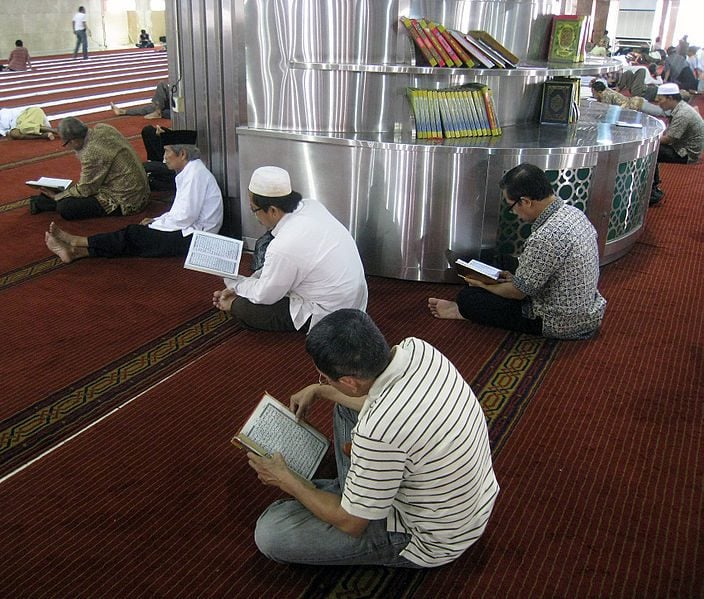
(Photo by Gunawan Kartapranata, Wikimedia CC)
One of the two principal tasks that I need to take care of with regard to my manuscript on Islam aimed at Latter-day Saints is to expand it, at least somewhat, from its Arab and even Middle Eastern focus to a broader picture of the Islamic world. Here’s a first step in that direction, some preliminary notes on Indonesia:
With a population standing today at well over a quarter of a billion people, Indonesia is the most populous Muslim-majority country. (Java is the world’s most highly-populated island, and Indonesia ranks as the fourth most populous country in the world.) Somewhere between 85% and 90% of the inhabitants of Indonesia’s 17,000 to 19,000 islands profess Islam.
In earlier centuries, though, the archipelago that we now call Indonesia wasn’t Muslim, and it surely isn’t and never has been Arab. Rather, it has long been a junction between the cultures of Oceania (Melanesia, Micronesia, Polynesia, and Australasia) and mainland Asia. Buddhism and Hinduism arrived in, respectively, the second and fourth centuries after Christ, brought by traders from the Indian subcontinent. Either singly or in combination, both religions were very influential in the area after the seventh century AD, at the latest.
Muslim merchants had been traveling throughout Southeast Asia since early Islamic times, but the oldest evidence for the presence of Muslims in the region—and specifically in northern Sumatra—dates to the thirteenth or perhaps the fourteenth century. Gradually, Islam spread throughout the archipelago. By the end of the sixteenth century, it was the predominant faith not only in Sumatra but also on the island of Java. The majority of Indonesian Muslims are Sunni.
The characteristic forms of Islam in Indonesia, and perhaps especially in Java, have mingled with the preexisting culture (including its Hindu and Buddhist elements) to create a unique flavor of Islam. It is often more tolerant and perhaps less rigorously practiced than in the heartland of the Middle East.
Indonesia’s constitution guarantees freedom of religion and makes the country a secular state. Things are a bit more complicated than that, however. For instance, Indonesian law requires every Indonesia citizen possess an identity card that identifies that person as either Muslim, Catholic, Protestant, Hindu, Buddhist, or Confucian. The law doesn’t recognize agnosticism or atheism—though it is permissible to leave that section of the card blank. Blasphemy is illegal, and the official philosophy of the Indonesia state is summed up in what have been called, since their first announcement in 1945, the Pancasila or “Five Principles,” the first of which is “Belief in the One and Only God.”[1]
[1] The other four are “A just and civilized humanity,” “A unified Indonesia,” “Democracy, led by the wisdom of the representatives of the People,” and “Social justice for all Indonesians.”
Posted from Newport Beach, California










